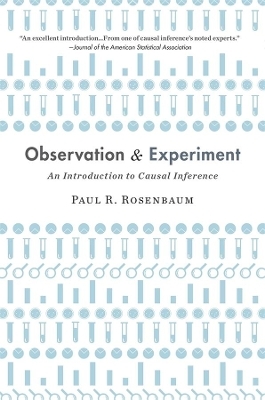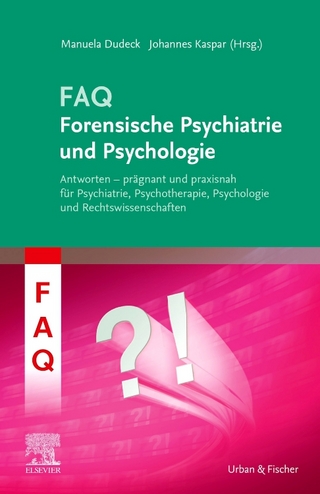
Observation and Experiment
An Introduction to Causal Inference
Seiten
2019
Harvard University Press (Verlag)
9780674241633 (ISBN)
Harvard University Press (Verlag)
9780674241633 (ISBN)
A daily glass of wine prolongs life—yet alcohol can cause life-threatening cancer. Some say raising the minimum wage will decrease inequality while others say it increases unemployment. Scientists once confidently claimed that hormone replacement therapy reduced the risk of heart disease but now they equally confidently claim it raises that risk. What should we make of this endless barrage of conflicting claims?
Observation and Experiment is an introduction to causal inference by one of the field’s leading scholars. An award-winning professor at Wharton, Paul Rosenbaum explains key concepts and methods through lively examples that make abstract principles accessible. He draws his examples from clinical medicine, economics, public health, epidemiology, clinical psychology, and psychiatry to explain how randomized control trials are conceived and designed, how they differ from observational studies, and what techniques are available to mitigate their bias.
“Carefully and precisely written…reflecting superb statistical understanding, all communicated with the skill of a master teacher.”
—Stephen M. Stigler, author of The Seven Pillars of Statistical Wisdom
“An excellent introduction…Well-written and thoughtful…from one of causal inference’s noted experts.”
—Journal of the American Statistical Association
“Rosenbaum is a gifted expositor…an outstanding introduction to the topic for anyone who is interested in understanding the basic ideas and approaches to causal inference.”
—Psychometrika
“A very valuable contribution…Highly recommended.”
—International Statistical Review
Observation and Experiment is an introduction to causal inference by one of the field’s leading scholars. An award-winning professor at Wharton, Paul Rosenbaum explains key concepts and methods through lively examples that make abstract principles accessible. He draws his examples from clinical medicine, economics, public health, epidemiology, clinical psychology, and psychiatry to explain how randomized control trials are conceived and designed, how they differ from observational studies, and what techniques are available to mitigate their bias.
“Carefully and precisely written…reflecting superb statistical understanding, all communicated with the skill of a master teacher.”
—Stephen M. Stigler, author of The Seven Pillars of Statistical Wisdom
“An excellent introduction…Well-written and thoughtful…from one of causal inference’s noted experts.”
—Journal of the American Statistical Association
“Rosenbaum is a gifted expositor…an outstanding introduction to the topic for anyone who is interested in understanding the basic ideas and approaches to causal inference.”
—Psychometrika
“A very valuable contribution…Highly recommended.”
—International Statistical Review
Paul R. Rosenbaum is Robert G. Putzel Professor of Statistics at the Wharton School and a Senior Fellow of the Leonard Davis Institute of Health Economics, University of Pennsylvania.
| Erscheinungsdatum | 20.08.2019 |
|---|---|
| Zusatzinfo | 13 illus., 28 tables |
| Verlagsort | Cambridge, Mass |
| Sprache | englisch |
| Maße | 156 x 235 mm |
| Themenwelt | Mathematik / Informatik ► Mathematik |
| Studium ► 1. Studienabschnitt (Vorklinik) ► Med. Psychologie / Soziologie | |
| Naturwissenschaften | |
| ISBN-13 | 9780674241633 / 9780674241633 |
| Zustand | Neuware |
| Informationen gemäß Produktsicherheitsverordnung (GPSR) | |
| Haben Sie eine Frage zum Produkt? |
Mehr entdecken
aus dem Bereich
aus dem Bereich
Antworten – prägnant und praxisnah für Psychiatrie, Psychotherapie, …
Buch | Hardcover (2024)
Urban & Fischer in Elsevier (Verlag)
CHF 75,60


